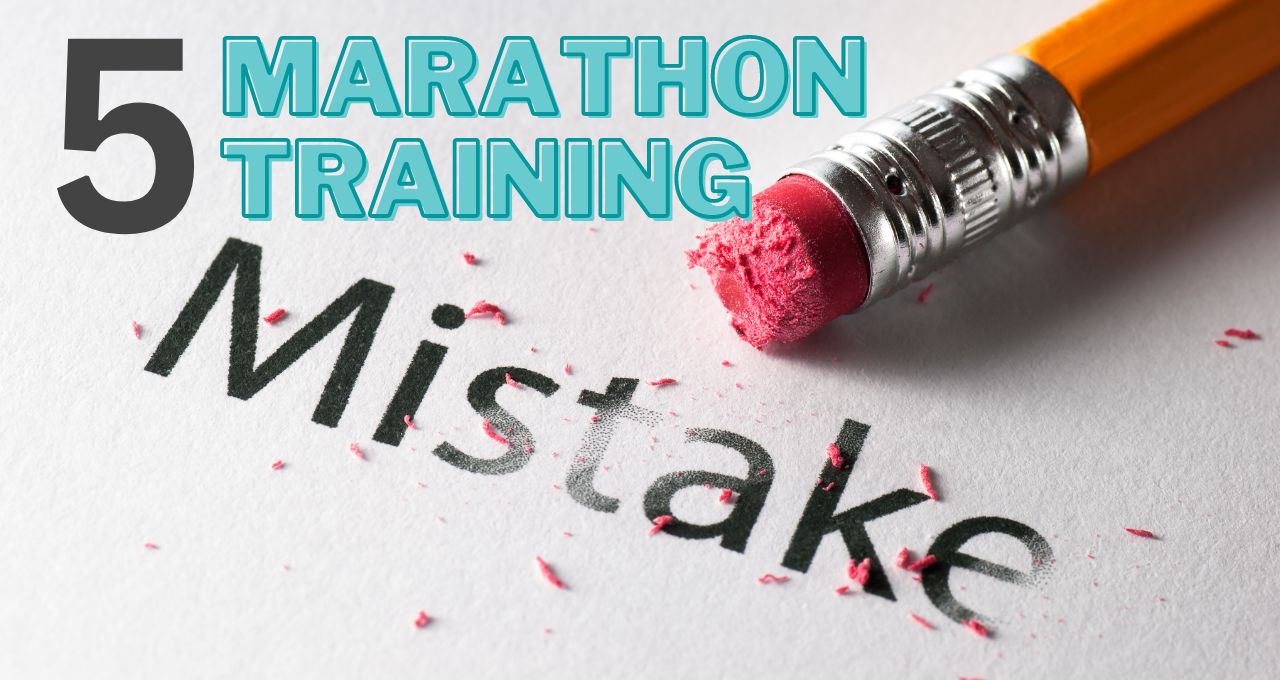Your cart is currently empty!

Avoiding the Pitfalls: Top 5 Marathon Training Mistakes and How to Prevent Them
/
Training for a marathon is an impressive undertaking, requiring dedication, discipline, and a strategic approach. However, even the most enthusiastic runners can fall into common training traps that hinder their progress or, worse, lead to injury. Here are the top five marathon training mistakes and how to prevent them.
1. Overtraining
Mistake: Overzealous runners often think that more is better, leading them to run too many miles too quickly without adequate rest. This can result in burnout, fatigue, and injuries such as stress fractures, tendonitis, or other overuse injuries.
Prevention: Follow a structured training plan that gradually increases mileage. Include rest days and ensure you get sufficient sleep. Listen to your body and don’t ignore signs of overtraining, such as persistent soreness, fatigue, or mood changes. Cross-training can also help maintain fitness without the constant pounding on your legs.
2. Neglecting Nutrition and Hydration
Mistake: Many runners underestimate the importance of proper nutrition and hydration, both during training and on race day. Inadequate fuel and hydration can lead to energy crashes, muscle cramps, and poor performance.
Prevention: Educate yourself on the nutritional needs of a marathon runner. Focus on a balanced diet rich in carbohydrates, proteins, and healthy fats. Stay hydrated throughout your training, not just during runs. Practice your race day nutrition and hydration strategy during long runs to find out what works best for you. Remember, what you consume can significantly impact your endurance and recovery.

3. Ignoring Strength Training and Flexibility
Mistake: Some runners focus solely on running, neglecting strength training and flexibility exercises. This can lead to muscular imbalances, decreased performance, and a higher risk of injury.
Prevention: Incorporate strength training into your weekly routine, focusing on core stability, leg strength, and upper body endurance. Exercises such as squats, lunges, planks, and deadlifts can build the muscle groups essential for running efficiency. Additionally, incorporate flexibility exercises and yoga to improve your range of motion and reduce the risk of injury. Regular stretching, especially after runs, is crucial to maintaining muscle health.

4. Skipping Speed Work
Mistake: Many marathoners, especially beginners, focus only on building distance and neglect speed work, thinking it’s unnecessary for long-distance running. This approach can lead to slower race times and plateaus in performance.
Prevention: Integrate speed workouts, such as interval training, tempo runs, and fartlek sessions, into your training plan. These workouts improve cardiovascular fitness, running economy, and overall speed. Even for marathon training, a balanced approach that includes speed work can help you become a more efficient runner, ultimately leading to better race performance.
5. Inadequate Recovery
Mistake: Recovery is often overlooked or underestimated, yet it is a critical component of any training plan. Runners who do not allow their bodies sufficient time to recover are at risk of overtraining syndrome and chronic injuries.
Prevention: Treat recovery with the same importance as your workouts. Ensure you have regular rest days and consider active recovery methods such as light jogging, swimming, or cycling. Post-run recovery should include proper nutrition, hydration, and stretching. Additionally, consider incorporating massages, foam rolling, and adequate sleep into your routine. Recognize that recovery is when your body repairs and strengthens itself, making it essential for long-term progress.
Conclusion
Avoiding these common marathon training mistakes can make a significant difference in your preparation and performance. By ensuring a balanced approach that includes adequate rest, nutrition, strength training, speed work, and recovery, you can enhance your training experience and increase your chances of success on race day. Remember, marathon training is a marathon in itself – approach it with patience, strategy, and self-care for the best results.
